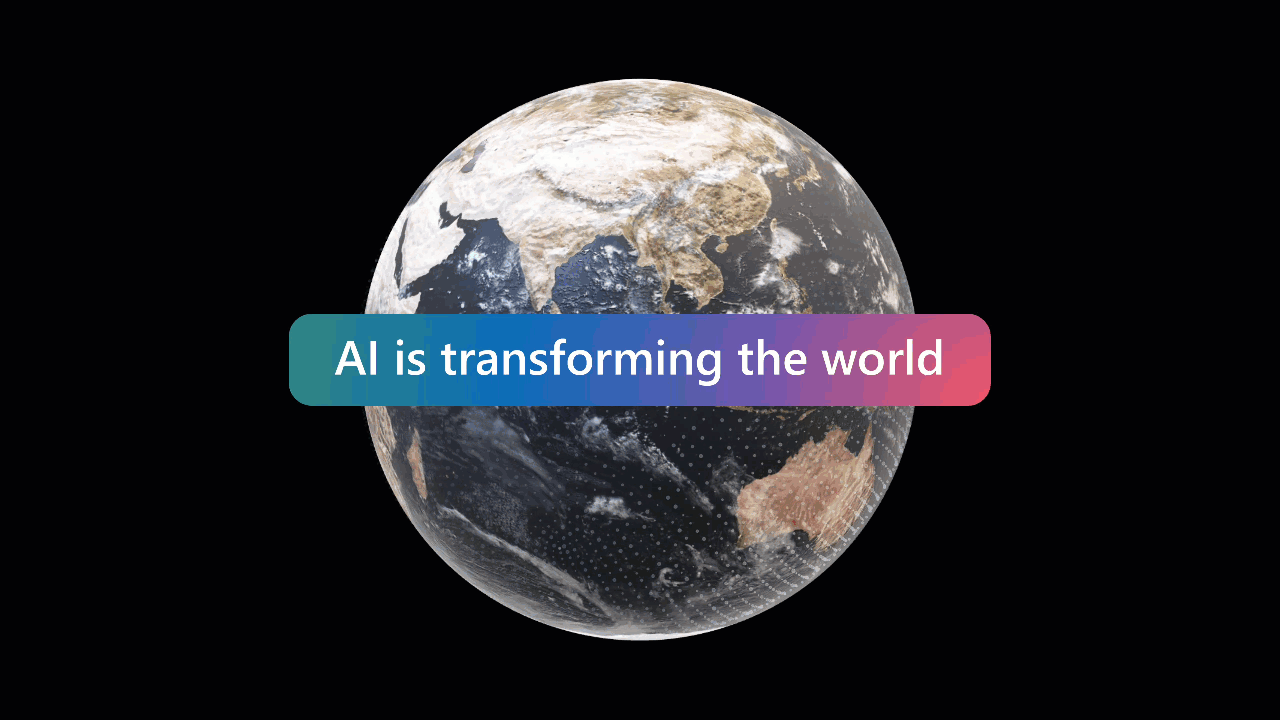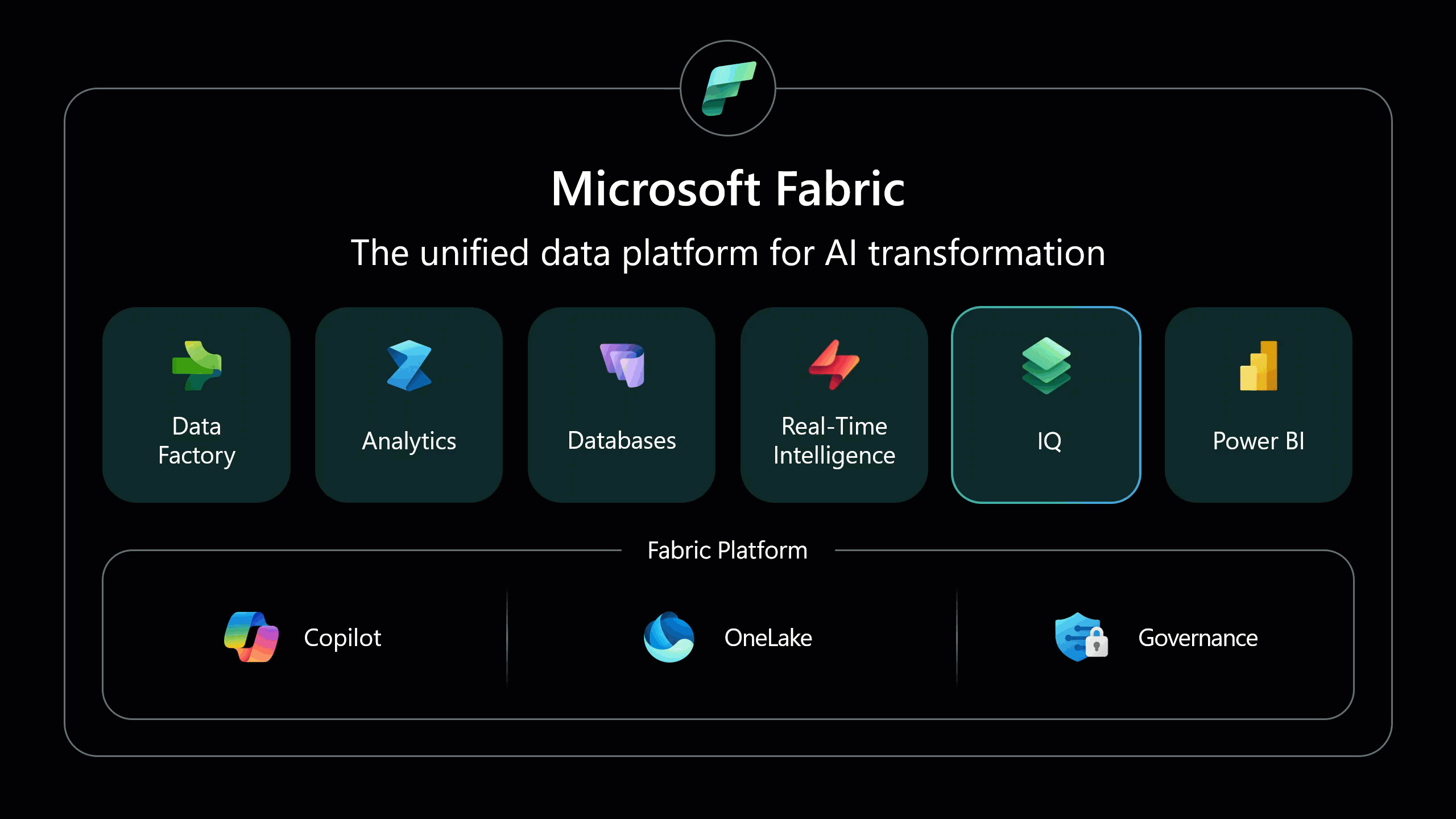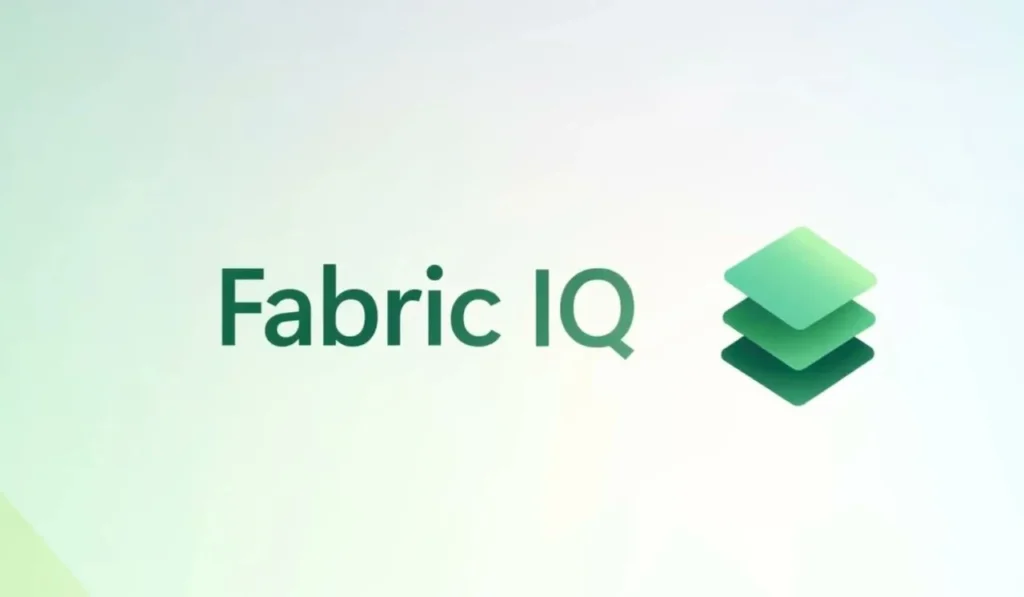Fabric IQ: The New Engine That Transforms Raw Data into a Complete Ontology
During Microsoft Ignite, the company unveiled Fabric IQ, a new layer of semantic intelligence designed to transform how organizations structure and utilize their data.
The goal: to create truly “intelligent” operational agents capable of understanding the meaning of data rather than merely identifying statistical patterns.
When Raw Data Is No Longer Enough
Companies are generating more data than ever before. Yet, even the best AI models struggle to truly understand what that data represents: relationships between products, customer hierarchies, interactions between production lines, and distribution networks… All essential nuances that traditional approaches—such as RAG, vector databases, and fine-tuning—address only indirectly.
This is precisely the gap Microsoft aims to fill with Fabric IQ, a semantic engine that enriches its data platform. The idea is both simple and radical: shift from isolated data to a complete ontology, a structure that maps entities, relationships, business rules, and actual operations.

This vision is based on extensive work: Microsoft has already integrated LinkedIn’s graph technology into Fabric, and Power BI has been powering over 20 million semantic models for analytics for years.
From BI to Corporate Ontology: The Scale Shift
Power BI semantic models already encapsulate part of the business knowledge: definitions of metrics, relationships between tables, and business hierarchies. Their limitation? They remain confined to business intelligence.
With Fabric IQ, Microsoft proposes to elevate these models to the level of ontologies. In other words, to connect all the systems within the company, link real workflows, and clarify operational rules.
Arun Ulag, Vice President of Azure Data, summarizes the significance of this change: “These models already describe what customers consider important. But we were only using a fraction of it. Transforming them into ontologies allows us to finally connect data across the entire organization.”
This represents a conceptual shift: instead of merely extracting documents (as RAG does), Fabric IQ builds a persistent structure of understanding, akin to a live map of the organization.

The Operational Agents: When AI Understands the Business Before Acting
With this ontology, Microsoft introduces a new type of agent: operational agents. These are capable of monitoring rules, observing flows in real-time, and making decisions under human supervision.
An example provided by Microsoft: in a supply chain modeled with Fabric IQ, the agent can detect a traffic problem in an urban area and automatically reroute trucks. No mere recommendation: an action based on a contextual understanding of the relationships between suppliers, inventory, routes, timelines, and priorities.
This is where the semantic approach makes all the difference. The agent no longer responds to a text query. It understands the organizational structure, the dependencies, and the operational implications.
A Clear Strategy: Making Semantics the Engine of Enterprise AI
For Microsoft, the challenge goes beyond merely marginally improving models. It’s about a paradigm shift: the performance of an agent depends less on the size of the dataset and more on the quality of the business context.
In parallel, Microsoft is enhancing its data portfolio:
- Azure HorizonDB, a PostgreSQL-compatible service (early preview),
- SQL Server 2025 (now available),
- Azure DocumentDB, also available.
Each component contributes to this vision of a unified and contextual data cloud.
The message from Microsoft is clear: AI will only be truly reliable if it understands how a business operates—not through statistical inference, but by deeply structuring meaning.
What Does Fabric IQ Mean for AI Strategies in Business?
Organizations are finding that simply scaling models or increasing the data volume is not enough. The emerging need is for context engineering: providing meaning, not just volume.
Fabric IQ is precisely focused on this idea. Well-formed ontologies could prove more effective for ensuring agent reliability than traditional optimization approaches.
Microsoft bets that semantic intelligence will be the true differentiator for AI platforms in the coming years. And that companies successfully transitioning to operational ontologies will gain a considerable advantage in automation.




